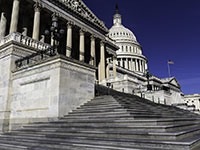The need to detect and investigate reported allegations of wrongdoing within a corporation has long been a fact of corporate life. In the last 15 years, however, a combination of circumstances has contributed to an explosion of activity in this area. Among the contributing factors was Congress’ passage of laws and related agency regulations encouraging and, in some cases, mandating that employees report suspected corporate misconduct; creating financial incentives for employees to do so; and prohibiting retaliation against those who report. For companies, understanding their obligations pursuant to this statutory regime and the unsettled issues still surrounding it is crucial both for purposes of complying with applicable law and responding appropriately to alleged wrongdoing. Recently Orrick attorneys drafted an article for the Review of Securities & Commodities Regulation that discusses certain significant whistleblowing provisions of the Sarbanes-Oxley Act of 2002 (“Sarbanes-Oxley”) and the Dodd-Frank Wall Street Reform and Consumer Protection Act (“Dodd-Frank”), as well as best practices for responding to tips where these statutes apply.
To view the full article, please click here.










